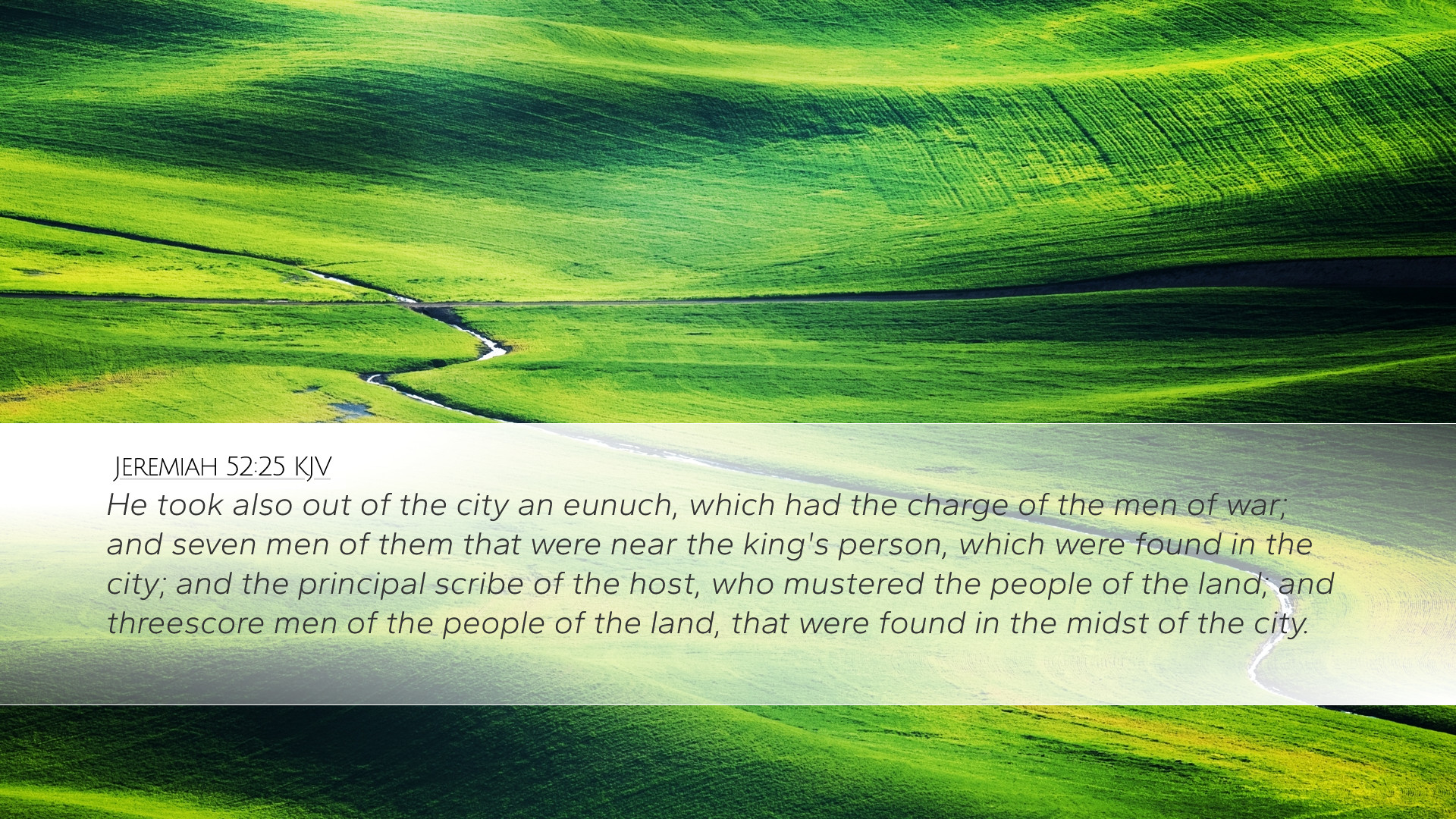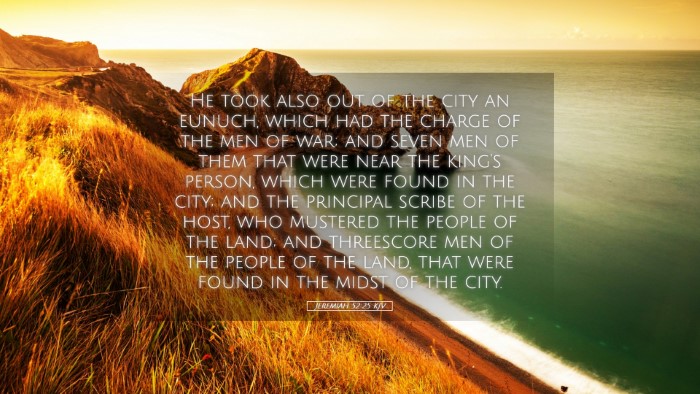Bible Commentary on Jeremiah 52:25
Verse Reference: Jeremiah 52:25
This passage recounts a pivotal moment in the history of Judah, emphasizing the continued narrative of God’s sovereignty and judgment. The context of this verse finds itself in the aftermath of the destruction of Jerusalem and the Babylonian exile.
Contextual Overview
Jeremiah, often termed the “weeping prophet,” prophesied during a time of great turmoil for Israel, particularly focusing on the moral decay leading to judgment. His prophecies culminate in the full realization of disaster as Babylon conquers Jerusalem.
Analysis of Jeremiah 52:25
Jeremiah 52:25 reads: “He took also out of the city an eunuch, which had been over the men of war; and seven men of them that were near the king's person, which were found in the city; and the principal scribe of the host, which mustered the people of the land, and threescore men of the people of the land that were found in the city.”
Historical Context
This verse describes the Babylonian officials' actions following the siege of Jerusalem. The reference to the "eunuch" and the "men near the king" indicates a systematic targeting of the city’s leadership, which is significant in the context of ancient warfare and conquest.
Theological Implications
From a theological standpoint, this verse encapsulates themes of judgment, the consequences of unfaithfulness, and the preservation of a remnant. It highlights God's authority over nations and his hand in the events that transpire, even in calamity.
Commentary Insights
Matthew Henry’s Commentary
Matthew Henry elaborates on the implications of the captives being taken, emphasizing that “the fall of Jerusalem was not merely a military defeat but was a divine judgment.” Henry points out that God’s hand orchestrates these events as a consequence of the nation's prolonged disobedience. He notes the significance of the leaders being taken against the backdrop of God’s covenant with Israel, which included conditions of fidelity to Yahweh.
Albert Barnes’ Commentary
Albert Barnes provides a detailed examination of the political and social ramifications of this event. He writes, “The capture of the king's officials not only signaled the end of an era but served as a warning to the surrounding nations about the supremacy of Babylon.” Barnes stresses the importance of understanding the leadership as representatives of God’s chosen people whose unfaithfulness led to their downfall.
Adam Clarke’s Commentary
According to Adam Clarke, there is an emphasis on the “great distress and horror” felt by Judeans as they witnessed their leaders falling into the hands of their enemies. Clarke suggests that this act was a fulfillment of previous warnings and indicates that the judgment was meant to avert further rebellion and instill reverence for God’s commands among the remaining populace.
Lessons for Today
- Understanding God's Judgment: Reflect on the reasons behind God's judgments and how they call for repentance and faithfulness.
- The Role of Leadership: Pray for current leaders to be guided by righteousness, aware of their responsibility before God.
- The Importance of a Remnant: Recognize that even in judgment, God preserves a remnant of believers, offering hope for future restoration.
Conclusion
Jeremiah 52:25 serves as a profound reminder of the consequences of turning away from God. The insights from Matthew Henry, Albert Barnes, and Adam Clarke urge us to see this event as more than just a historical occurrence; it is a living testament to the character of God, who calls His people to fidelity and righteousness. As such, this passage remains ever relevant for pastors, students, and scholars alike, prompting reflection on the nature of leadership and the seriousness of divine judgment.


